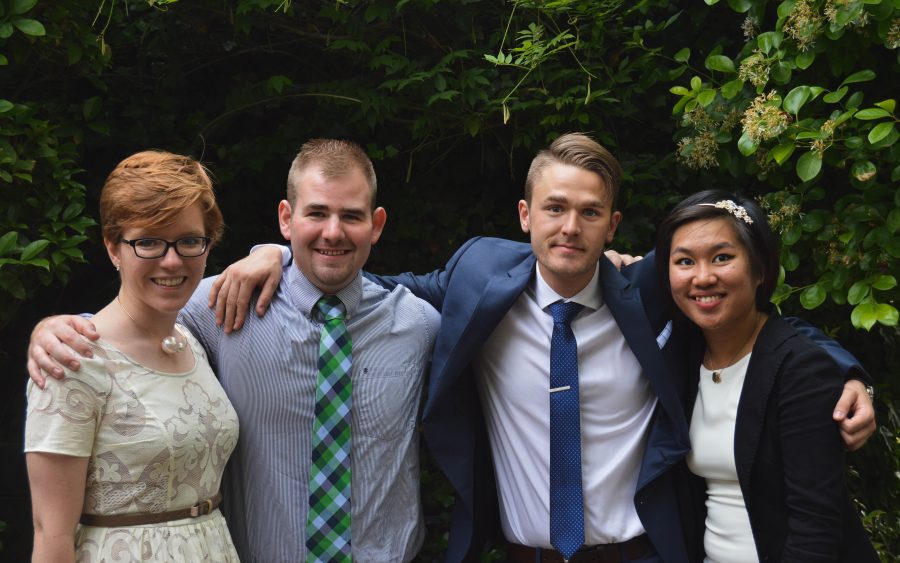The Premedical Association (PMA), a student-run organization that currently has about 80 members, exists to connect new and transfer students to peers who are more familiar with the programs.
According to Danny Machado, senior premed major and president of the PMA, the association informs students, especially freshmen and sophomores, about the rigors that their future careers demand.
Machado recounted his own experience as a freshman.
“When I came to [BJU] three years ago, I started out premed, but I had no idea what was going on.”
However, with the help of the PMA, Machado learned to use his summers for research and shadowing as well as preparing for the Medical College Admissions Test (MCAT).
The PMA also helps to round out its members by offering seminars and forums.
Some of these meetings include mock interviews, which show students what the difficult medical school application process will be like.
Other things, like forums or discussion panels, cover a range of topics from the genetics of Adam and Eve to a seminar on MRI machines delivered by one of the inventors, Dr. Raymond Damadian.
Even study opportunities offered by organizations like the Medical Experience Academy (MedEx Academy) are all a part of the preparation and learning process.
The PMA also hosts an annual ethics conference.
Dr. Mike Gray, biology faculty member and an original founder of the PMA, promoted the ethics conference as being important for the development of the students’ individual worldviews.
“Your patients need to be in good medical care and need to be trusting that you’re operating with integrity from a biblical perspective,” Gray said.
The association isn’t limited in its scope to just helping students academically.
The PMA offers its members the chance to fellowship together as they work toward a common goal.
Dr. Marc Chetta, biology faculty and adviser to the organization, and Dr. Vincenzo Antignani, biology faculty and promoter of the association, both described the group as having a sense of camaraderie.
Allyson Jenkins, sophomore premed major, described her close relationship with the other students in PMA.
“We’re all going through the same struggles,” Jenkins said. “It brings us closer, just experiencing all the joys of good grades and also trials of late nights and [homework].”
In light of the difficulties the students face in one of the most rigorous majors offered at BJU, the PMA offers a sort of home away from home—a support for students who are preparing for perhaps the hardest educational course they could choose to pursue.
The association offers freshman premed students like Kamron Hamedi the opportunity to connect with more experienced upperclassmen and learn how best to handle the heavy workload required by his program.
Antignani argued for the importance of the sense of family that the major and association promote.
“When they feel like they’re more welcome, when they feel like they’re friends, when they feel like they [have] created a social substrate,” Antignani said, “that helps them to get stabilized emotionally, [and] intellectually.”
Because of the high quality of work demanded by the program, an average of 80 to 100 percent of all BJU premed graduates are accepted into medical school within a year of graduation as opposed to the national average of 45 percent.
To maintain this level of academic quality, however, the program remains difficult.
Machado emphasized that the major was demanding, but nevertheless he showed no regret for his decision to go into the medical field.
“At the end of the day, when you really sit down and just think, ‘is this really going to be worth it?’ I think it is going to be worth it,” he said. “I think it’s going to be a meaningful life.”





















































